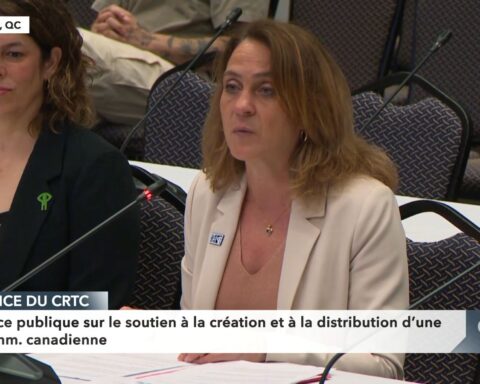All that’s solid melts into air. — Karl Marx
It was only a matter of time before the tidal waves of this “great economic crisis” of ours would throw onto the shore one or more corporate media victims. So for exhibit A, let’s cast a sturdy gaze towards the imminent collapse of the Asper family’s control of CanWest Global.
As the Globe & Mail’s Derek DeCloet sagely noted in late February, “it was always going to end up this way.” It’s a big(ger) budget remake of the Eaton family fiasco of a junior killing off the fruits of daddy’s empire, with all the ingredients of arrogance, greed and poor judgement still in the frame. The junior here is Leonard Asper who, as I write this, is struggling to refinance CanWest’s $4 billion debt load in order to doorstop bankruptcy (at worst) and the ouster of his family from control (at best).
In fairness to the enormity of Mr. Asper’s troubles, he did have a few enablers. The biggest and most suspect is the CRTC (Canadian Radio-television and Telecommunications Commission). In 2007, against a vigorous lobby from the entire production community, the Commission thumbed its nose at us all and made a colossal error: deep in the mindset itself of debt-aholicism, they approved CanWest Global’s purchase of Alliance Atlantis Corporation’s crown jewel assets of specialty channels and distribution, to the overall tune of $2.3 billion, in spite of CanWest’s incapacity to pay more than $262 million of the tag. The CRTC approved a uniquely complex deal allowing US investment bankers Goldman Sachs (GS) to foot the rest of the bill. GS are also enablers and, in spite of having fared better than others of their species on Wall Street of late, they won’t be able to save CanWest. Due to foreign ownership rules, the CRTC approved the situation where GS could have majority of the equity but minority of the voting stake. (I suspect if you polled each Commissioner, you’d likely get a different version of what this strange deal was really all about…but I digress.)
The CRTC failed to appreciate the extent of the large and lingering debt incurred when Mr. Asper Jr.—following his father’s final deals—expanded in 2000 deep into old media, with the purchase of future convict Conrad Black’s newspapers. At the very least, the CRTC should have taken a very close look at the balance sheet in 2007 and ascertained that CanWest’s future viability was threatened unless it dumped some or all of these newspaper assets. We now know the only dumping CanWest did was on the production community and consumers by trying to convince the Commission in recent TV hearings that they should grab a fee for conventional carriage from cable companies and be freed from certain content obligations, especially in local markets.
So let’s dispense with the predictions. The following seems likely: that the still-thriving Fairfax Financial Holdings Ltd., who have about 22% stake in CanWest, will refinance it, or at least lead the charge in cobbling together new investors. Maybe they’ll strike a deal with Corus and/or Astral, since Fairfax’s business is insurance, not media. The deal will have to be contingent on the Aspers being shown the door for their appalling lack of financial acumen. Furthermore, if Corus buys the Slice Network, it could do worse than consolidating it with their W Network, thereby putting the rivalry between the two for audiences and a shrinking ad market to bed once and for all.
One thing is certain: we can’t keep looking at cable companies to be the saviour of broadcast assets. The CRTC know they’ve got to come up with a less monopolistic map of our broadcast and new media world and create conditions for new players to enter the field. This will be a question for them in their summer hearings.
Now, for those of you who think good riddance to Global remember that many filmmakers, producers, writers and actors survive by creating programs and series destined for one or more of CanWest’s stable of channels, particularly History, Showcase, Slice, and even the desperately anemic Global TV itself. The same folks, in other words, who tried to warn the CRTC at the outset of the folly of a privileged scion’s reach exceeding his debt-addicted grasp.











